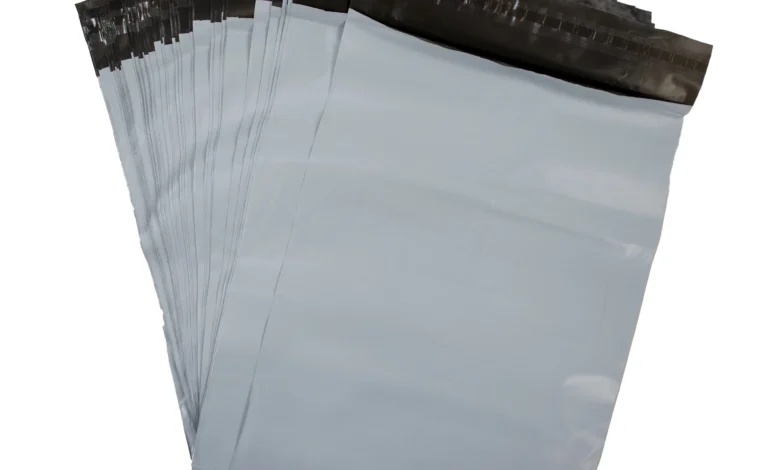What Regulations Affect the Use of Poly Bags in the Bay Area

Poly bags are commonly used in various industries for packaging and transportation. However, the use of poly bags in the Bay Area is subject to several regulations aimed at protecting the environment and ensuring public health and safety.
These regulations can impact how businesses operate and how consumers use these bags. Understanding these rules is crucial for compliance and sustainability. In this article, we will explore the key regulations that affect the use of poly bags Bay Area.
1. Statewide Plastic Bag Ban (SB 270)
In 2016, California implemented Senate Bill 270 (SB 270), which effectively bans single-use plastic carryout bags at large retail stores. This law was the first of its kind in the United States and has significant implications for businesses and consumers in the Bay Area.
- Provisions
Retail stores and large pharmacies are prohibited from providing single-use plastic bags to customers. Instead, they must offer reusable bags, paper bags, or compostable bags for a minimum charge of 10 cents per bag.
- Exemptions
Certain types of bags, such as those used for produce, meat, or prescriptions, are exempt from this ban.
- Impact
This regulation encourages the use of reusable bags and reduces plastic waste, helping to protect the environment.
2. Local Ordinances
In addition to the statewide ban, several cities within the Bay Area have their own regulations regarding poly bags. These local ordinances may have stricter rules and additional requirements.
- San Francisco
San Francisco has been a pioneer in plastic bag regulation, implementing its first ban in 2007. The city now requires that all checkout bags be compostable, reusable, or made of recycled paper, with a minimum charge of 25 cents per bag.
- Berkeley
Berkeley’s Single Use Foodware and Litter Reduction Ordinance requires that all food service businesses use compostable or reusable bags and packaging. Plastic bags are largely prohibited.
- San Jose
San Jose mandates that retailers charge a minimum of 10 cents for each recycled paper bag or reusable bag provided to customers.
3. Recycling Requirements
California has robust recycling laws that affect the use and disposal of poly bags. These laws aim to reduce waste and promote recycling efforts.
- AB 2449: This law requires large retailers to provide recycling bins for plastic bags and film. Consumers can return used poly bags to these bins for recycling.
- CalRecycle: The state’s recycling program, CalRecycle, oversees the implementation of recycling laws and ensures that businesses comply with recycling requirements.
4. Proposition 67
In 2016, California voters approved Proposition 67, which upheld the statewide plastic bag ban and added additional provisions.
- Purpose: The proposition aims to reduce plastic pollution, protect marine environments, and decrease the environmental impact of plastic bags.
- Revenue Use: The revenue generated from the sale of reusable and paper bags is used for environmental cleanup, waste reduction, and other programs.
5. Environmental Protection Agency (EPA) Guidelines
While the EPA primarily sets national guidelines, their regulations also influence state and local policies regarding poly bags.
- Waste Management
The EPA’s guidelines on waste management encourage the reduction, reuse, and recycling of plastic products, including poly bags.
- Environmental Impact
The EPA works with state agencies to monitor and reduce the environmental impact of plastic waste, promoting sustainable practices.
6. Sustainability Initiatives
Many businesses in the Bay Area are adopting sustainability initiatives that align with local and state regulations on poly bags.
- Corporate Responsibility
Companies are increasingly adopting policies to reduce plastic use, promote reusable bags, and support recycling programs.
- Green Certifications
Businesses may seek green certifications that require adherence to stringent environmental standards, including the use of eco-friendly packaging.
7. Public Awareness Campaigns
Government agencies and non-profit organizations often conduct public awareness campaigns to educate consumers and businesses about the regulations and the importance of reducing plastic waste.
- Educational Programs: Programs and workshops are held to teach the public about the benefits of reusable bags and proper recycling practices.
- Community Initiatives: Community clean-up events and recycling drives encourage active participation in reducing plastic waste.
8. Impact on Businesses
Compliance with Poly bags Bay Area regulations can have several implications for businesses.
- Operational Changes
Businesses need to adjust their operations to comply with bag bans and recycling requirements, which may involve additional costs.
- Customer Relations
Clear communication with customers about bag policies and charges is essential to maintain customer satisfaction and compliance.
- Innovation Opportunities
Regulations drive innovation, leading businesses to develop new, eco-friendly packaging solutions that can set them apart in the market.
9. Future Trends
As environmental concerns continue to grow, the Bay Area may see further tightening of regulations related to poly bags and plastic use.
- Stricter Bans: Future legislation may impose stricter bans on plastic bags and other single-use plastics.
- Increased Recycling Efforts: Enhanced recycling programs and facilities will likely be developed to handle plastic waste more efficiently.
- Sustainable Alternatives: Research and development into sustainable packaging alternatives will continue to rise, providing new options for businesses and consumers.
Conclusion
The use of poly bags Bay Area is governed by a combination of state and local regulations aimed at reducing plastic waste and promoting sustainability. Businesses and consumers alike must be aware of these regulations to ensure compliance and contribute to environmental protection. By understanding and adhering to these rules, we can all play a part in creating a cleaner, greener Bay Area. Thank visiting usafulnew.com



